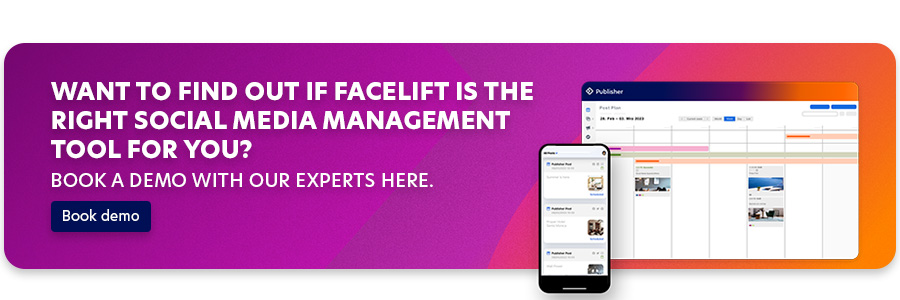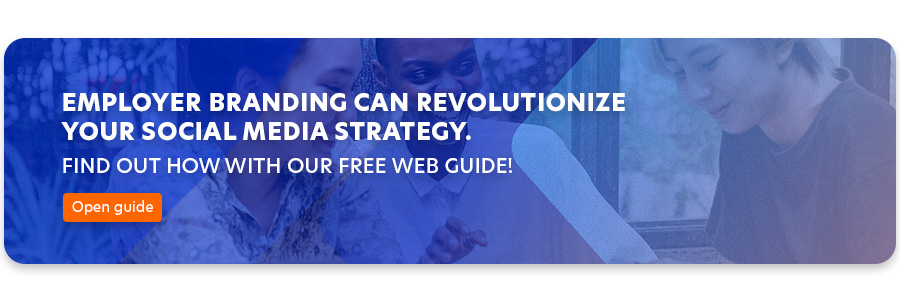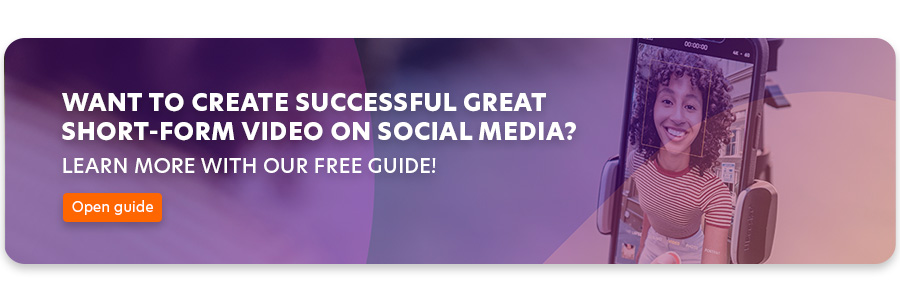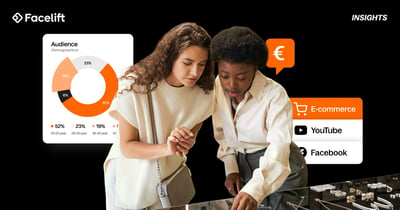The evolution of personal branding over time is reflected in figures such as Napoleon Bonaparte, Coco Chanel and Karl Lagerfeld. Napoleon, the courageous 19th century general, created a distinctive brand through his military exploits. Coco Chanel revolutionised the world of fashion, embodying elegance and freedom. Lagerfeld became a fashion legend with his eccentric style and work ethic.
All three have managed to build a strong and timeless personal brand. And they did it without the benefits of social media. Today, anyone can use the networks to position themselves. So what is it all about?
What is personal branding?
Personal branding is the strategic process by which an individual consciously carves out their personality, skills and uniqueness to create a clear identity. Similar to corporate branding, it is about building reputation and credibility to create a positive impact in public, at work and online. It enables individuals to gain trust, highlight competence and maximise opportunities. Personal branding establishes individuals as unique resources in their field and promotes effective communication and leadership. A strong personal brand inspires and guides others.
Your brand is what others say about you when you're not in the room. - Jeff Bezos
Why is personal branding important?
- Builds trust and credibility: A strong personal brand builds trust with your audience. When people know who you are and what you stand for, they are more likely to trust you and be receptive to your messages.
- Career advantages & candidate market: Your personal brand can make all the difference in your career development. It opens doors to new opportunities, networking opportunities, and maybe even your dream job. The job market is more competitive than ever. Personal branding helps you stand out and highlight your uniqueness.
- Positioning: With a clear personal brand, you position yourself in your field and communicate your value. You show what makes you unique and why people should pay attention to you.
- Visibility & reach: In a world where companies spend a lot of money on SEO to be visible in Google search results, personal branding offers individuals the opportunity to get top search results for free. When people search for you, there are basically three options:
- They find embarrassing content from you, which can be quite painful.
- They don't find anything at all, which raises legitimate questions about who you are in 2023. And are you alive, and if so, are you well?
- You will find a well-maintained account with added value. Since you've read this far, I think we can agree that this is the ideal case, right?
In an age where digital visibility has a huge impact on our professional success, personal branding is no longer an option, it's a necessity. It allows you to build trust, stand out from the crowd, and open the door to new opportunities. So take control of your personal brand and take charge of your professional future.
First Steps to personal branding
The path to a strong personal brand begins with conscious choices. Here are the first steps to help you build a strong personal brand:
Step 1: Self-reflection and audience analysis.
- Ask yourself: who "am I really and what do I want to stand for in the world?" Identify your values, strengths, and passions. This is the foundation of your personal brand.
- A key aspect of self-reflection is recognizing what makes you unique. What sets you apart from others in your field or industry? Your uniqueness is the key to a successful personal brand. It makes you special and ensures that people recognize and value you.
- In addition, a target audience analysis is essential. Who are you trying to reach? Understanding who you want to reach is critical to the success of your personal brand.
Step 2: Positioning and Message
- Once you've identified your identity and target audience, it's time to create your positioning. Clear positioning and messaging are critical to effectively communicating your personal brand.
- How do you want your target audience to perceive you?
- What message do you want to convey?
Step 3: Online presence and social media:
- The digital world plays a central role in personal branding today. Unlike Coco Chanel and Napoleon, social media allows you to reach your followers in real time. Think about where you want to be online and choose platforms based on your target audience.
- Make sure your online presence matches your positioning and message. Choosing the right channels and maintaining your social media presence is critical to building and strengthening your personal brand.
Setting the stage for your personal brand
When it comes to personal branding, there's no room for compromise. You need to be on the best stages to effectively market your brand. Here are some platforms that are particularly suited to your personal branding:
1. LinkedIn - where business and networking go hand in hand.
LinkedIn is the gold standard of professional social networking and a stage for your brand that you should not miss. Here you can expect an international business mindset that is second to none. You can share your expertise, network and take your career to the next level. LinkedIn offers organic reach without fighting algorithms.
This is where your skills and ideas matter. Share and learn because this is where knowledge is truly interacted with and valued. And the best part? There is no limit to the number of followers. Your community can grow indefinitely. LinkedIn gives you great filtering capabilities. You can search by industry, job title or geography to make the right connections. LinkedIn is part of Microsoft, which means constant innovation and integration. The combination of business expertise and technology power is an incredible value proposition.
2. Xing - The control center for your personal brand in the DACH region
If you want to build your personal brand in the German-speaking region, Xing is the place to be. Here you will find a professional atmosphere, tailor-made for networking and strong local business relationships in the German-speaking region. Xing offers a wide range of features, especially for recruiters and job seekers.
With highly detailed profiles, the ability to post and become active in professional groups, you have the ideal stage to showcase your expertise and network with peers and industry experts.
3. Instagram - Showcase your creativity
Instagram is the stage for visual storytelling. Use the platform to showcase your creative side. Share photos and stories that reflect your personality and interests. Create visual stimuli that inspire your target audience. The short video formats via Stories & Reels are especially useful for engaging your followers in your story.
4. Facebook: The personal branding treasure chest
Facebook, the birthplace of social media platforms, offers many personal branding opportunities. You can create a profile, participate in groups to share your expertise, and communicate with your target audience in real time using the Live feature. Keep in mind, however, that Facebook has a limit of 5,000 friends per profile, which encourages you to build an engaged community where quality trumps quantity. However, you can also create a Facebook page for yourself. This may require a new level of work, but it has no follower limitations and may let you separate your personal life from your professional.
5. X (Twitter) - Your voice to the world
X is the platform where you can share your opinions and thoughts in real time. Use it to comment on relevant topics, set trends and showcase your expertise. With 280 characters, you can influence the world.
6. YouTube - Your own TV channel
YouTube is your chance to become a star in your field. Share your knowledge, tutorials and stories in video form. With the merger of YouTube and Google, YouTube videos are highly ranked in the search engine. By using powerful keywords and descriptions for your videos, you can rank well in search results and attract more viewers.
YouTube offers great opportunities to build a loyal community of subscribers who watch your videos regularly and interact with you and other viewers.
Another benefit is that as your videos become popular, you can monetize them through advertising or other means.
7. Podcasts - speak and be heard
For those who prefer speaking to writing, but are afraid to get in front of a camera, podcasts are the ideal choice. Tell stories, share knowledge and build a loyal audience.
Common personal branding mistakes
- Profile photo: A blurry, unprofessional, or missing profile picture can ruin your first impression. A quality image is a must.
- Work history: Your work history is important, but if you don't include descriptions of your roles and accomplishments, people will miss out on valuable insights. And you're giving up the chance to be found through your skills. Your LinkedIn profile is your digital resume. Use it to shine!
- Profile taglines: Your tagline should reflect your current position or professional message. Outdated taglines look sloppy and will get you lost in search results. Best practice: Don't (just) use your job title, but create excitement and curiosity.
- No proprietary content: Sharing only content about the company will not help your reach in the long run and shows a lack of initiative. Create your own content and add value to your followers with your expertise.
Constant self-promotion: Constant self-promotion can be off-putting. - Constant self-promotion: Constant self-promotion can be off-putting. Provide your community with a balanced mix of value and advertising.
- No community management: Ignoring comments and messages shows a lack of interest. Actively engage with your community to build and maintain relationships.
 Summary: Personal Branding on Social
Summary: Personal Branding on Social
Remember that you are the creator of your brand. Figuratively speaking, these platforms are your canvases. Paint a powerful picture of yourself and let the world see why you are exceptional. That's the way to unforgettable personal branding. Go ahead, be bold!








